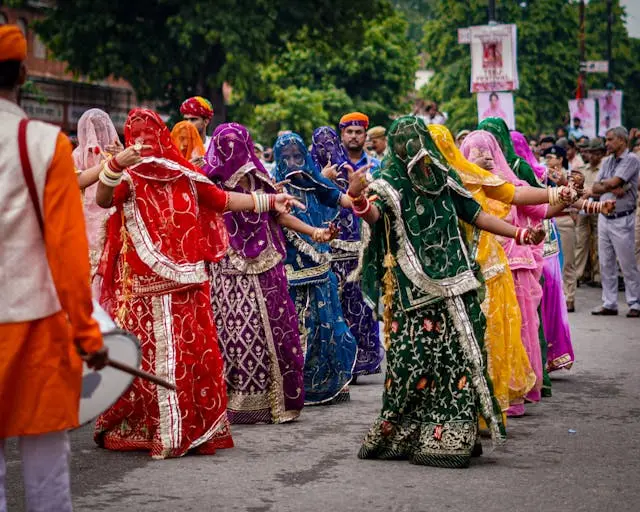In many cultures, certain numbers are considered special or lucky. In the traditional Indian and Desi calendars, the number five holds a very important place. The fifth day of the lunar cycle is known as Panchami, and it is widely considered to be a day full of positive energy and opportunities.
But unlike the 5th of an English month, Panchami happens twice every month! This can be confusing if you are trying to plan for festivals or special events. This guide was created to make it simple. We will explain what Panchami is, why it is so special, and provide you with a clear and complete list of all the Panchami dates for 2025.
Complete List of Panchami Dates 2025
Here is a simple table with all the Panchami dates for the 2025 calendar year. We have noted whether they fall in the bright fortnight (Shukla Paksha) or the dark fortnight (Krishna Paksha).
*NOTE: NM PANCH = New Moon Panchami , FM PANCH = Full Moon Panchami
| Sr | Month | NM Panch | Day | FM Panch | Day |
|---|---|---|---|---|---|
| Sr1 | MonthPoh | NM Panch | DaySaturday | FM Panch | DaySaturday |
| Sr2 | MonthMagh | NM Panch | DaySunday | FM Panch | DayMonday |
| Sr3 | MonthPhagun | NM Panch | DayTuesday | FM Panch | DayTuesday |
| Sr4 | MonthChet | NM Panch | DayWednesday | FM Panch | DayThursday |
| Sr5 | MonthVaisakh | NM Panch | DayFriday | FM Panch | DayFriday |
| Sr6 | MonthJeth | NM Panch | DaySaturday | FM Panch | DaySunday |
| Sr7 | MonthHarh | NM Panch | DayMonday | FM Panch | DayTuesday |
| Sr8 | MonthSawan | NM Panch | DayTuesday | FM Panch | DayWednesday |
| Sr9 | MonthBhadun | NM Panch | DayThursday | FM Panch | DayFriday |
| Sr10 | MonthAssu | NM Panch | DaySaturday | FM Panch | DaySaturday |
| Sr11 | MonthKatak | NM Panch | DaySunday | FM Panch | DayMonday |
| Sr12 | MonthMaghar | NM Panch | DayTuesday | FM Panch | DayTuesday |
Why Does Panchami Happen Twice a Month?
The Desi calendar follows the cycle of the moon. This cycle starts with the dark new moon (Masya) and grows to the bright full moon (Puranmashi), before fading back to darkness again. This journey is split into two halves, each about 15 days long, called a “Paksha” or fortnight.
- Shukla Paksha (The Bright Fortnight): This is the period when the moon is waxing, or growing brighter, from the new moon to the full moon. The fifth day of this phase is the first Panchami.
- Krishna Paksha (The Dark Fortnight): This is the period when the moon is waning, or growing darker, from the full moon back to the new moon. The fifth day of this phase is the second Panchami.
Famous Festivals Celebrated on Panchami
Some of the most beloved festivals are celebrated specifically on the fifth day of the lunar cycle.
Basant Panchami (Magh Shukla Paksha):
Also known as Vasant Panchami, this is a joyful festival dedicated to Saraswati, the goddess of knowledge, music, and art. It marks the beginning of the spring season. People often wear yellow clothes, fly kites, and introduce young children to reading and writing for the first time on this auspicious day.
Nag Panchami (Sawan Shukla Paksha):
This is a traditional and important day for honoring the Naga, or serpent gods. Devotees offer milk and prayers to snakes, seeking blessings and protection for their families from snakebites, especially during the rainy monsoon season when snakes are most active.
Vivah Panchami (Maghar Shukla Paksha):
This special day celebrates the divine wedding anniversary of Lord Rama and Sita. Temples are decorated, and plays and readings depicting their wedding are performed. It is considered an extremely blessed day, celebrating the ideals of marriage and partnership.

Conclusion
From the joy of Basant Panchami to the unique traditions of Nag Panchami, it is clear that the fifth day of the lunar cycle is a truly special time. It serves as a regular reminder in the calendar to embrace new opportunities and positive energy. We hope this guide to the Panchami dates of 2025 helps you plan for these lucky days and connect more deeply with the rhythm of the traditional calendar.

